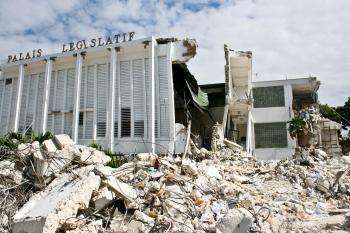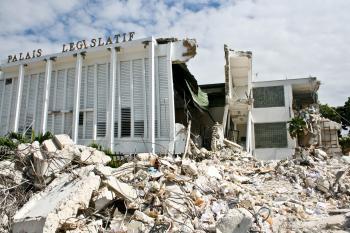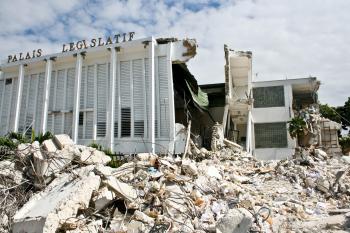SANTO DOMINGO, Dominican Republic —Cesar Valera, a young rescue worker from the Dominican Republic, rushed to help earthquake survivors in neighboring Haiti as soon as he heard about the tragedy. The Epoch Times caught up with Cesar in Santo Domingo.
Although Cesar has belonged to a volunteer fire department in Santo Domingo, the capital of the Dominican Republic, for 10 years, nothing has matched the intensity of his experience in Haiti since after the quake.
“It’s very sad to see so many children crying, traumatized, sleeping in the streets, begging for food and water, the bodies on the ground, and the smell of death that pervades the city. It has made a great impact on me.”
Cesar has been doing rescue work since Jan. 13, putting in at least a week of his time at the epicenter of the devastation. He has witnessed and lived amid the dire and deadly physical consequences of the earthquake. He said that the present living conditions for the affected Haitians cannot be completely undestood abroad.
Although Cesar has belonged to a volunteer fire department in Santo Domingo, the capital of the Dominican Republic, for 10 years, nothing has matched the intensity of his experience in Haiti since after the quake.
“It’s very sad to see so many children crying, traumatized, sleeping in the streets, begging for food and water, the bodies on the ground, and the smell of death that pervades the city. It has made a great impact on me.”
Cesar has been doing rescue work since Jan. 13, putting in at least a week of his time at the epicenter of the devastation. He has witnessed and lived amid the dire and deadly physical consequences of the earthquake. He said that the present living conditions for the affected Haitians cannot be completely undestood abroad.


